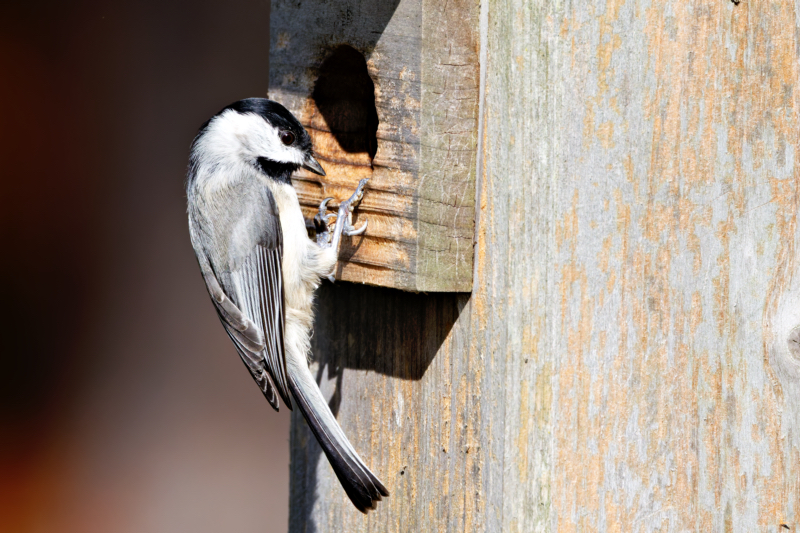Lately, I’ve been enjoying watching both Eastern Bluebirds and Carolina Chickadees checking out one of the birdhouses in my yard. It’s such a rewarding experience, especially since birdhouses play a critical role in supporting these birds, not just during the warmer months but also in the fall and winter.
If you’re like me and love helping the birds in your yard, keeping your birdhouses up during the colder months in Arkansas is highly recommended. Here’s why!

Benefits of Keeping Bird Houses Up Year-Round
- Winter Shelter
While we typically think of birdhouses as spring and summer nesting spots, they also offer essential winter shelter. In the colder months, when natural protective foliage is scarce, birds like the Eastern Bluebird and Carolina Chickadee seek out safe, warm places to roost overnight. Birdhouses can provide this much-needed refuge, giving birds a fighting chance against the winter chill.
- Protection from Predators and Harsh Weather
Arkansas winters can bring cold temperatures, ice, and sometimes snow, all of which pose challenges to birds. Birdhouses offer a safe haven, protecting them from both the elements and predators. Species such as Eastern Bluebirds, Black-capped Chickadees, Carolina Wrens, and even Titmice may take shelter in these houses during extreme weather. It’s amazing to think that a simple birdhouse could help them survive the winter.
- Early Nesting Preparation
Another great reason to keep birdhouses up during the off-season is that some species, like Eastern Bluebirds, start scouting for nesting sites earlier than others. By leaving birdhouses available throughout winter, you give these early nesters a head start in finding their ideal spring home. You’ll likely see them flying around, checking out potential spots, just like I’ve noticed in my yard.
How to Winterize Your Birdhouse
To make your birdhouse more comfortable during winter, a few simple adjustments can go a long way:
- Seal some ventilation and drainage holes to trap heat inside but leave a few open for airflow.
- Flip the front panel (if possible) so the entrance hole is lower, reducing heat loss.
- Add insulating materials like dried grass, wood shavings, or even a scrap of carpet to the bottom for extra warmth.
- Install perches inside the birdhouse so more birds can share the space.
- Position the house in a sheltered area, facing away from prevailing winds to keep it as warm as possible.
Cleaning and Maintenance Tips
Keeping your birdhouse in good shape is just as important as keeping it up year-round. Here are some quick tips to ensure it’s safe for winter use:
- Clean out the birdhouse after the nesting season ends, typically in mid to late fall. Old nests can harbor parasites, so it’s best to start with a fresh, clean space.
- Check for and repair any damage before winter sets in. This ensures your birdhouse remains sturdy and warm.
- Protect delicate or decorative birdhouses. If you have any fancy birdhouses, consider storing them indoors during the winter to avoid damage from snow and ice.
Final Thoughts
Leaving birdhouses up during fall and winter provides much-needed shelter for Arkansas birds, ensuring their survival and helping them prepare for the next breeding season. I can’t wait to see if the Eastern Bluebirds or Carolina Chickadees end up using the house I’ve been watching. By following these simple tips, we can all support our feathered friends through the harshest months, and who knows—maybe we’ll see them return for nesting when spring rolls around!
For more tips on how to winterize your birdhouses and help your backyard birds, check out these useful resources:
Winter-Proofing Your Birdhouse
To Clean or Not to Clean Your Nest Box
So, if you have a birdhouse in your yard, don’t take it down when the leaves start to fall! Keep it up, and you’ll likely be rewarded with a few visitors looking for a cozy spot to brave the cold nights.
Thanks for the tips, Steve!